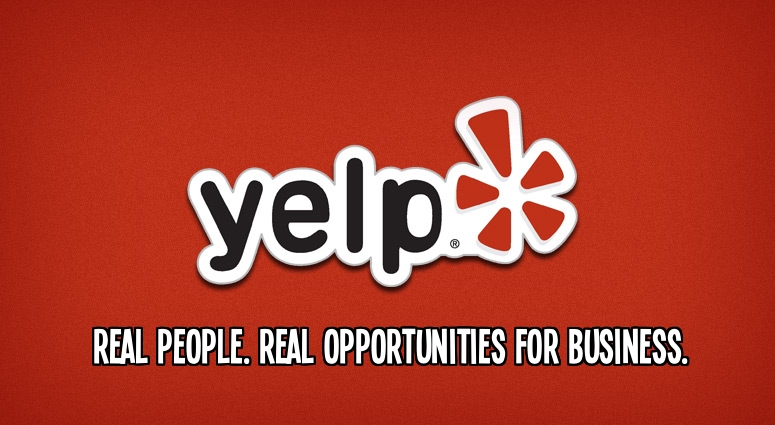 Of all the review sites and social media profiles that strike a nerve with small businesses, Yelp seems to be the amalgamation of everything business owners hate about online, anonymous reviews. Blog posts have been penned on why you can’t trust Yelp, there are dozens of articles on what you can do about Yelp as a small business, and there are entire blogs dedicated to compiling some of the most offensive one star reviews.
Of all the review sites and social media profiles that strike a nerve with small businesses, Yelp seems to be the amalgamation of everything business owners hate about online, anonymous reviews. Blog posts have been penned on why you can’t trust Yelp, there are dozens of articles on what you can do about Yelp as a small business, and there are entire blogs dedicated to compiling some of the most offensive one star reviews.The purpose of this article isn’t to suggest that Yelp is infallible or that customers who write one star reviews complaining about twenty seconds being a “long wait time” to receive their orders are correct. Yes, there are a lot of problems with Yelp that have been covered in plenty of detail, and Yelp recently defeated a lawsuit against its infamously arbitrary review filter. This also generally applies to online review sites overall, but Yelp is generally used as their collective ambassador.
When put in perspective, Yelp and online review sites arm businesses with an invaluable tool that they never had until the 2000s when online reviews started taking off. I was in a meeting with a client recently and an employee was expressing exasperation at how how you can say anything online, and that there’s nothing the business can do about it.
The point that people can say anything online is true, but what makes this a “forest for the trees” statement is remembering that people can say anything offline too. Anonymity has certainly made it easier for people to be more freely vitriolic to more people without worrying about the consequences, but as a practice bad word-of-mouth isn’t new. The Internet didn’t conceive angry complaints, ugly rumors, and irate former employees seeking to destroy their former workplaces. The ability to see and react to these reviews and accusations in a public forum is an unprecedented level of market research and customer communication for business owners, and it can mean the difference between a customer who spends the next year patronizing your competitor or a customer who gives you another chance.
Consider some of the examples I’ve raised earlier: A sales associate being slightly rude to people, a customer who decides to spread a rumor based on a bad experience, or a former employee out to ruin your online reputation. Several negative reviews on Yelp will not only highlight the problem but reveal it very quickly and help you roughly determine the number of people affected. Without Yelp or Google Reviews you may not learn about this type of problem months or even years later, by which time it can cost thousands of dollars in lost business.
Another comment that this employee had is that she and her husband usually don’t comment or complain when they’ve had a poor experience and simply never patronize the business again. I understand this perspective from a consumer standpoint, but as a business owner this should be what you strive to avoid. It’s a worst case scenario to be losing business and not know what pushes customers away. If there’s a rude sales associate or a bad rumor, you should want to know as soon as possible so you can deal with it.
The second point – that businesses can’t do anything about Yelp or Google Reviews – is hogwash. Part of the problem is that business owners focus squarely on their inability to remove bad feedback, which is only going to make things much worse. As a business owner you have the ability to claim business listings and respond to reviews publicly and privately. By reaching out proactively to these complainants, you’re demonstrating to everybody who visits Yelp that you care enough to remedy a bad situation. It makes you look better and it can turn an unhappy customer into a brand ambassador.
The hard truth about running a business is that people who are upset, angry, or just venting are going to speak ill about your business either way, online or offline, whether their complaints are valid or not. As painful and frustrating as it can be to see it, take a deep breath and think about how you can leverage bad reviews as positive things for you and your business. If it helps, keep Yelp’s own points in mind when thinking about the people behind the keyboard:
- Your reviewers are your paying customers (author’s note: usually, anyway)
- Your reviewers are human beings with (sometimes unpredictable) feelings and sensitivities
- Your reviewers are vocal and opinionated (otherwise they would not be writing reviews!)
These are humans writing these reviews, not impish demons hellbent on ruining your business. Approach and treat them like people, and you may very surprised at how quickly you can turn around a bad situation.
